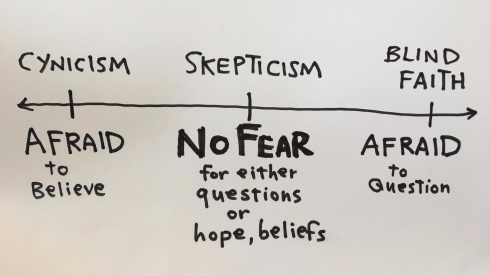I’ve been hanging around YouTube of late, watching videos and commenting here and there, often on Muslim channels. I am fascinated by the religion and am excited to learn more about it. I’m particularly interested to see how Muslims integrate well established historical and scientific facts with their religion — their worldview. I am continually challenged to do the same with my Christian worldview! My hope is that we can mutually learn from each other.
I’ve had many, many productive chats. Along the way, I’ve managed to draw the ire of some of the channel moderators, who will, from time to time, block my replies from being seen. I can see them when I log in, but if I switch identities, they disappear. With that in mind, plus desiring the ability to format conversations (add diagrams, block quotes, bulleted lists, etc.) I am opening up this thread primarily for my Muslim friends in order to provide a safe, confidential forum that is not subject to censorship from either YouTube or the channel moderators. Continue reading











